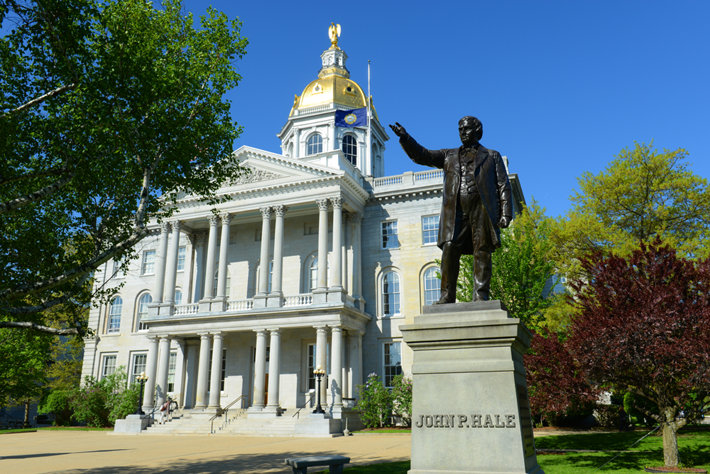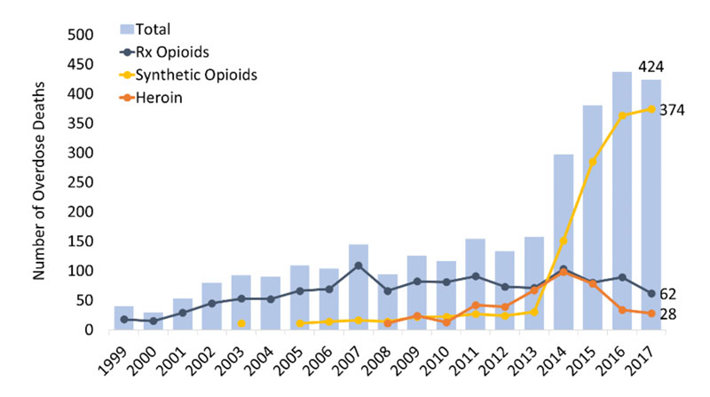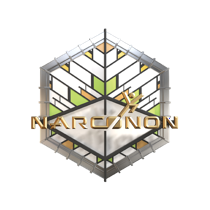Do “Sin” Taxes Actually Work in Reducing Drug and Alcohol Use?

Almost two decades into the 21st century, it's easy enough to look back and see our accomplishments thus far. The innovation of robotic limbs, evidence of water on Mars, advancements in HIV cures, inventing new tech to use water as a clean energy source, the list goes on and on.
Unfortunately, another phenomenon that came with the 21st century was the onset of what might be the worst drug addiction epidemic the United States has ever seen. The crisis has consumed the lives of tens of millions of people, killed hundreds of thousands of individuals, and ruined millions of families.
In the wake of such a dire crisis, various states have formulated their own means of addressing the problem. In New Hampshire, one of that state’s primary means of tackling addictive substances and activities is to levee significant taxes on such substances and activities. These are called “sin” taxes.
But does taxing things like alcohol, tobacco, and gambling actually reduce people’s interest and engagement in those things? Furthermore, is it even a good idea to create a negative stigma of such activities by calling the taxes “sin” taxes?
New Hampshire and “Sin” Taxes
New Hampshire collects a high percentage of general revenue from the taxation of alcohol, tobacco, gambling, and the lottery. In fact, the Granite State takes first place in the U.S. for the percentage of revenue collection from such taxes. New Hampshire is the nation’s tenth-least populated state, yet it brings in about $1 billion in tax revenue from “sin” taxes. That amounts to about 23 percent of the state's own-source general tax revenue. Compare that to the national average, which is about 4.8 percent own-source general tax revenue from “sin” taxes.
Clearly, New Hampshire’s state government relies heavily on its constituents purchasing alcohol, tobacco, and lottery tickets.
“Well, we know that people in our state are always going to want alcohol, tobacco, and gambling, so we should generate tax revenue off of such substances and activities.”
The problem is, basing a state’s tax income from the sale of harmful items/activities is not only unsustainable, but it also projects a negative future. Heavily taxing habit-forming substances and activities is basically to say, “Well, we know that people in our state are always going to want alcohol, tobacco, and gambling, so we should generate tax revenue off of such substances and activities.”
That is a poor outlook, certainly. Shouldn’t a state be working hard to get its constituents to turn away from habit-forming activities and substances? Shouldn’t a state be looking for more positive, sustainable, and mutually beneficial methods of tax revenue collection, all while educating and encouraging its populace to avoid addictive substances?
To play the devil’s advocate, there is some logic in heavily taxing addictive substances and activities. If something costs more, fewer people will take part in it. And then whatever tax revenue does come in could be used to help those who have legitimate problems with addictive substances. From this perspective, leveeing significant taxes on “sin” items and habits might make sense. But what looks good on paper doesn't always pan out in real life, and that seems to be the case in New Hampshire.
New Hampshire Addiction Statistics
When we explore substance abuse statistics for New Hampshire, it turns out that this state is profoundly affected by the national addiction epidemic. According to the National Institute on Drug Abuse, “New Hampshire is among the top five states with the highest rate of opioid-involved deaths. In 2017, there were 424 drug overdose deaths involving opioids in New Hampshire—an age-adjusted rate of 34.0 deaths per 100,000 persons. This was more than twice the average national rate of 14.6 deaths per 100,000 persons.”

And according to Sobering Up, “Following a study analyzing alcohol consumption over a 30-day period, New Hampshire ranked the highest, not only in the northeast, but throughout the country. Unfortunately, this high rate of alcohol abuse has spilled over to the roads. In 2016 alone, there were 136 alcohol-impaired-driving fatalities, a 21% jump from the previous year.”
Even though New Hampshire heavily taxes alcohol, tobacco, gambling, and the lottery, that hasn’t helped the state escape the national addiction crisis.
The Proper Way to Treat Addiction
There is another point to consider in all of this, the point of negative stigma and stereotype. While there might be some sense in taxing “bad habit” items like tobacco, alcohol, the lottery, and gambling, we have to be very careful that we don’t create a negative stigma or stereotype on people who cannot control their participation in the above items. Even calling such taxes “sin taxes” is a mistake, because it merely feeds that stigma.
Again, leveeing higher-than-normal taxes on lottery tickets, gambling institutions, alcohol, and tobacco might have some sense to it. If such activities and substances are more expensive, fewer people will engage in them. If fewer people engage in them, fewer people will become addicted to them.
But it is a mistake to use this approach as a state’s first line of defense against addiction. When someone becomes addicted to something, they will do whatever it takes to get that substance. It won’t matter how expensive or “hard to get” that substance is. An addict will move mountains to get his fix. That is how strong addiction is, and that is why we mustn’t stereotype or stigmatize addiction. We have to treat addicts with the proper rehabilitation programs.
For those in New Hampshire and across the country for that matter, if you know someone who is struggling with an addiction to something, don’t assume that your state’s tax policies will dissuade them from consuming the substance. If you know someone who needs help, make sure they get it.
Stereotyping addicts has never helped our efforts to create a drug-free America. Neither has jailing addicts or taxing their substances. The only safe and effective way to treat addiction is with the help of a residential drug and alcohol treatment center. If you know someone who needs such a program, do your best to help them get into one.
Sources:
- https://www.isbglasgow.com/10-greatest-scientific-discoveries-and-inventions-of-21st-century/
- https://www.usnews.com/news/best-states/articles/2019-10-25/new-hampshire-profits-most-from-sin-taxes
- https://www.drugabuse.gov/opioid-summaries-by-state/new-hampshire-opioid-summary
- https://www.scramsystems.com/blog/2018/04/alcohol-abuse-the-biggest-addiction-problem-in-new-hampshire/
Reviewed by Claire Pinelli, ICAADC, CCS, LADC, RAS, MCAP
